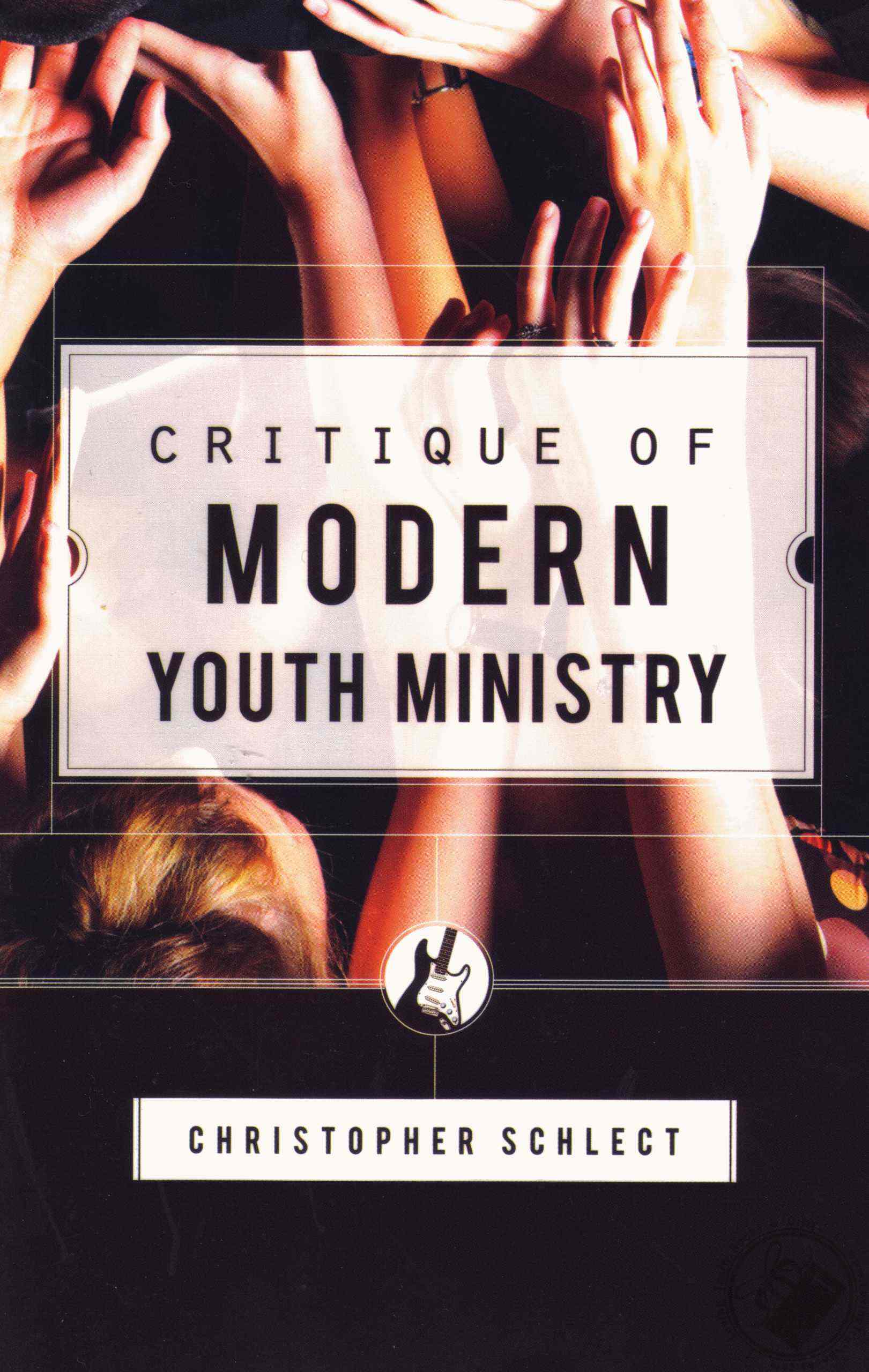Christopher Schlect, Critique of Modern Youth Ministry (Moscow, ID: Canon Press, 1995).
21 pgs., paperback.
Christopher
Schlect has written—what many would undoubtedly argue—a “timeless” critique of
youth ministry by shifting the burden of training youth in the faith back to the family, especially to the
fathers.
Schlect
begins by giving various reasons why there exists an age-segregated youth
ministry within the church today: (1)
the intentional age segregation of public education in the early-to-mid
twentieth century and (2) the rise of para-church ministries that have targeted
teenagers, such as Youth for Christ and Young Life. Churches, to meet the challenges of these “competitors,”
developed their own age-segregated and anti-family youth ministries.
He
points out, rightly, that youth ministries today communicate an unhealthy
message when they entertain teenagers
instead of engaging them in biblical discipleship or modeling the importance of
family. Schlect also, rightly, argues
for cross-generational ministry, one that places the responsibility of training
younger members in the faith primarily on older people, especially parents.
He is
also right in saying that parents, and especially fathers, are largely
abdicating their responsibilities of raising their children in the nurture and
admonition of the Lord. He maintains that
youth ministers should seek to point students back to their families for godly
instruction.
While
the above points are helpful, I have four critiques of the book:
First—and most disappointing—the book is
law-driven and offers mere behavior modification as the solution. There is no gospel. He offers nothing about the role of
justification, imputed righteousness, or the atoning work of Christ that would
encourage families and youth ministers to adopt his thesis. Thus it lacks the proper motivation for
family-based youth ministry.
Second,
Schlect advocates a Christ-against-culture
model of ministry that is foreign to the Christ revealed in the Gospels. Our task should be about the transformation of culture by the power
of the gospel, not complete avoidance of culture—being in the world, but not of
it (John 17:11-16).
Third,
Schlect offers very little advice (he touches on it briefly on the last couple
of pages) for youth ministry with regard to the overwhelming trend of children
being raised in non-Christian homes.
Obviously, we should reach out to those families, but are we to wait
until those families are saved before “biblical” youth ministry can take
place? I agree that parents have the primary responsibility to train their
children in the instruction of the Lord.
But the fact that children are raised in truly non-Christian homes is now
the majority report in America rather than the minority one. The book is nearly 17 years old, which might
explain why this element is not drawn out a little more.
Fourth,
he seems to de-value the role of the church body. While he doesn’t explicitly say this, it is
implicit in the pages. Rather than
advocating an either-or approach (family or
church), it would be better to advocate a both-and approach—one that emphasizes
the importance of both the church
body and the family in instructing
youth in the faith.
Schlect
does a fine job at helping us understand the misguided and unhealthy state of
youth ministries today. And his solution
is also helpful: godly parenting. But the
absence of the gospel makes such a call an impotent, moralistic plea. We are to trust in the merits of Christ on
our behalf. He took the penalty for our
parenting failures and gave us his righteousness so that we now, with grateful
hearts, are enabled to strive for student ministry and parenting that pleases
God.
Brian H. Cosby, the Rooted blog's newest contributor, is an ordained minister in the
Presbyterian Church in America, Associate Pastor of Youth and Families at
Carriage Lane Presbyterian Church in Peachtree City, Georgia, and author of Giving Up Gimmicks: Reclaiming Youth Ministry from an Entertainment Culture (P&R Publishing, 2012).

Great review. Very balanced. I particularly resonate with the Christ against culture attitude that can arise in the family ministry / homeschool world. NT Christianity seems very much to espouse taking Christ into the culture.
ReplyDelete